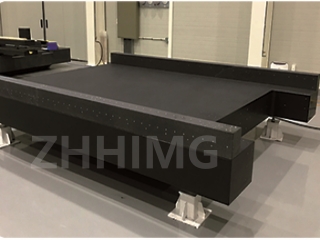When choosing the right precision machining machine tool, the choice between granite and steel is crucial. Granite machine tool beds are favored by all walks of life because of their unique advantages compared with traditional steel bed beds. Here are a few compelling reasons to consider using granite for your next machining project.
First, granite has excellent stability. Unlike steel, which expands or contracts with temperature fluctuations, granite maintains its dimensional integrity. This stability is critical for precision machining, as even minor deformations can lead to inaccuracies in the final product. Granite's thermal stability ensures your machines remain aligned and accurate, increasing overall productivity.
Another significant advantage of granite machine tool beds is their shock-absorbing properties. Granite naturally absorbs vibrations that can adversely affect the machining process. By reducing vibration, granite beds help improve finished product quality and extend the life of cutting tools. This feature is especially beneficial in high-speed machining applications where accuracy is critical.
Granite is also resistant to wear and tear. Unlike steel, which can develop scratches and dents over time, granite maintains its surface integrity, providing a long-lasting solution for machine tool beds. This durability means lower maintenance costs and less downtime, making granite an affordable choice in the long run.
In addition, granite machine tool beds are generally lighter and easier to transport and install than steel machine tool beds. This is a significant advantage for facilities with limited space or companies that frequently relocate machinery.
To sum up, there are many benefits to choosing a granite lathe bed over a steel lathe bed, including higher stability, better shock absorption, better durability, and easier operation. For businesses that value precision and efficiency, granite is undoubtedly the best choice.
Post time: Dec-12-2024

